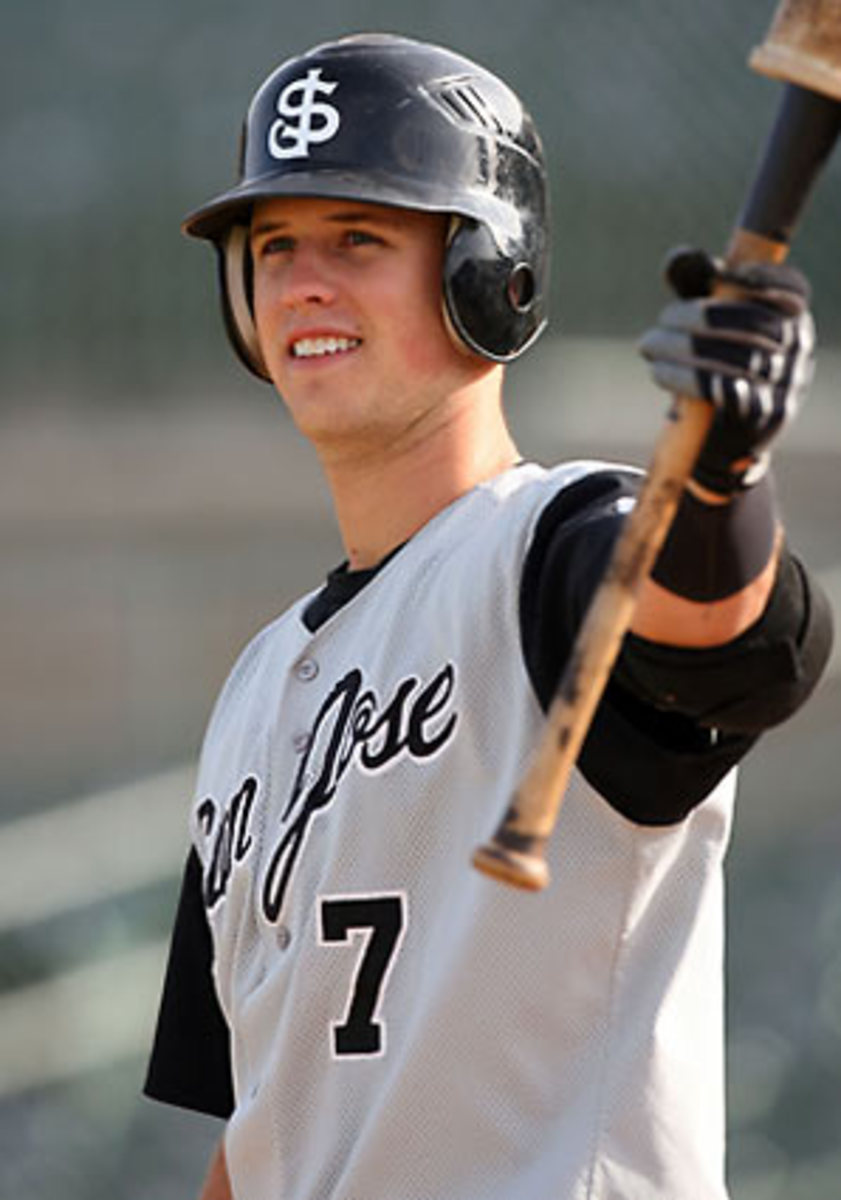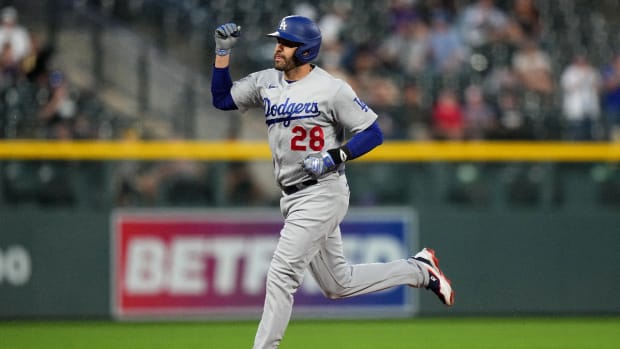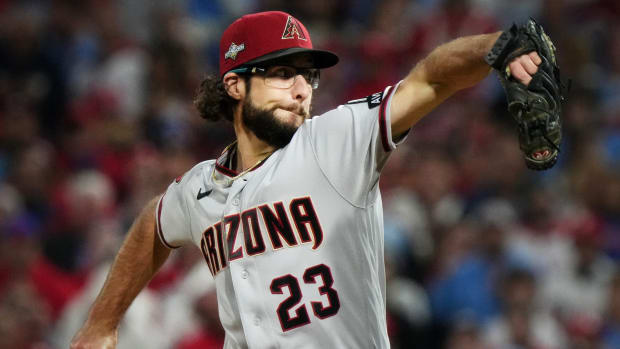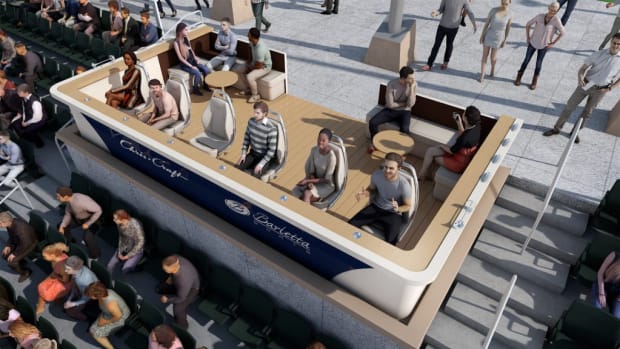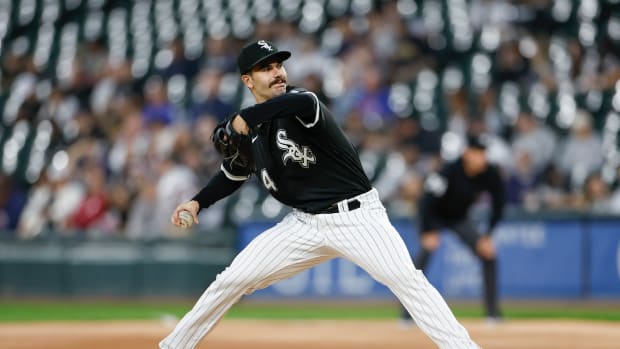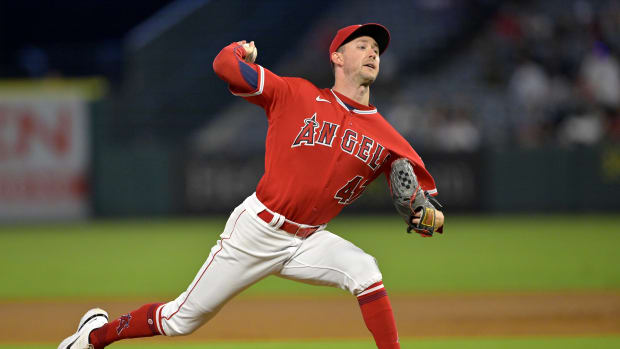The Untouchables: Top prospects with little chance of relocation
As the July 31 non-waiver deadline approaches, names of baseball prospects loom larger than usual. Their names pop up in reporters' notebooks and on the crawl on ESPN as trade rumors come and go.
The word "untouchable" comes up a lot with certain prospects; no general manager wants to be on the wrong end of a deal like the Indians-Expos trade back in 2002. With Montreal facing possible contraction but also challenging for a wild-card spot, general manager Omar Minaya acquired Bartolo Colon from Cleveland in a deal that sent prospects Cliff Lee, Brandon Phillips and Grady Sizemore back to the Tribe. While Phillips had to go to Cincinnati to find his way as a player, Lee won a Cy Young Award in 2008 and Sizemore is a three-time All-Star and the face of the Indians franchise. Meanwhile, the Expos didn't make the playoffs, and haven't come close to developing players of Lee and Sizemore's caliber since trading them away.
With the salaries of today's players, finding homegrown talent that give clubs cost control, at least for a few years, has become a priority for most franchises. Even the game's revenue giants, the Red Sox and Yankees, are loathe to trade away top prospects.
No one loves prospects like Baseball America, but even we have a hard time thinking any of these guys are untouchable if the player in return is 1 1/2 years of Roy Halladay, at a fair market value. Using the teams' definition, though, we did come up with a list of prospects whose value to their organizations probably precludes them from being traded in the next few weeks.
Cue the Eliot Ness music -- here are our Untouchables:
Buster Posey, C, Giants
Posey was the 2008 College Player of the Year and has had a strong start to his pro career, batting .326/.428/.540 with 13 homers at high Class-A San Jose. Like most premium 2008 draftees, he signed late and would have to be a player to be named in a deal (players can't be traded until one year after signing their first pro contract). Recently promoted to Triple-A Fresno, Posey is expected to take over for impending free agent Bengie Molina next year. The Giants need offense, but won't deal Posey to get it.
Jhoulys Chacin and Esmil Rogers, RHPs, Rockies
These are two best homegrown arms in Colorado's system, with Chacin especially interesting due to the Aaron Cook-like sink on his fastball. Rogers, a converted outfielder, beat Chacin to Triple-A. They should follow Ubaldo Jimenez's path to the Rockies rotation, but if Colorado-native Halladay were available for these two guys and not much else, the Rockies would have to make that trade ... wouldn't they?
Jordan Lyles and Ross Seaton, RHPs, Astros
Houston is rebuilding its awful farm system the last two years with new scouting director Chris Heck, and two of the keys are these two 2008 high school products. The Astros are making another surprise charge in the weak National League Central but can't spare this duo. Lyles ranks third in the South Atlantic League in strikeouts while going 5-8 with a 3.25 ERA. Seaton ranks fifth in the league in ERA (2.51) with a 7-8 record. Since the Astros paid the duo a combined $1.63 million in signing bonuses last year, they won't be going anywhere.
Brad Holt, RHP, Mets
The Mets' problems are obvious. It's probably too late for them to become buyers, and a huge problem with this season's team is the lack of upper-level minor-league talent to fill gaps on the big-league roster caused by injuries. Holt, last year's supplemental first-round pick, looks close to being ready to help a rotation that has given 27 starts to the likes of Livan Hernandez and Tim Redding. The best homegrown arm in the system has reached Double A in his first pro season and is comparable stuff-wise to Mike Pelfrey, only with a better breaking ball.
Danny Valencia, 3B, Twins
Third base has been a black hole in Minnesota since Corey Koskie's free-agent departure after the 2004 season. Joe Crede is a solid stop-gap, but Valencia should become a cheaper, similar player soon. He's a bat-first player with a knack for squaring up pitches, and his power is coming on. He's been especially hot since a promotion to Triple-A Rochester and is hitting .308/.372/.522 overall. A homegrown hot-corner answer would be very difficult for the modest-revenue Twins to give up in any deal.
Jesus Montero, C/DH, Yankees
Scouts who cover the Yankees organization are fond of saying the team overvalues its own prospects, but the scouting consensus is Montero is the real deal. He has premium raw power and pure hitting ability to go with it. If he can catch, he could have a Mike Piazza-esque career. More than likely, he's New York's future DH, and the Yankees' asking price for him is prohibitive.
Tim Beckham, SS, Rays
Beckham was No. 1 overall pick last year, and it wouldn't make much sense for the cash-strapped Rays to deal a guy just after paying him $6.15 million bonus. More likely, if Tampa were to make a move, it would build it around Triple-A shortstop Reid Brignac, a solid defender and good left-handed bat who is blocked by big league All-Star Jason Bartlett.
Mike Stanton, OF, Marlins and Jason Heyward, OF, Braves
The two best prospects in the game are truly untouchable for the right reason. They're similar to Sizemore as future franchise centerpieces.
Clay Buchholz, RHP, Red Sox
Here's an example of why teams are so reluctant to trade prospects. The Red Sox entered the year with eight starting pitchers, but injuries have eroded that depth, and Buchholz was just summoned back to Boston to replace ailing All-Star Tim Wakefield. The Red Sox (and most scouts) view him as a future front-of-the-rotation starter, even after his 2008 hiccup.
Martin Perez, LHP, Rangers
Texas is cash-strapped as well and probably can't take on salary, but it also has the deepest farm system in the game. Perez may have the highest ceiling of any Rangers pitcher as an 18-year-old Venezuelan southpaw mowing down hitters in low Class A. In one five-inning July start, Perez threw his fastball in the 90-94 mph range, struggling a bit with his command, but broke off several curveballs with excellent depth and a changeup that he throws with fabulous hand speed. He has mound presence, competitiveness, above-average stuff and a solid delivery. In other words, he's exactly the kind of player other teams ask for in trade talks.






























